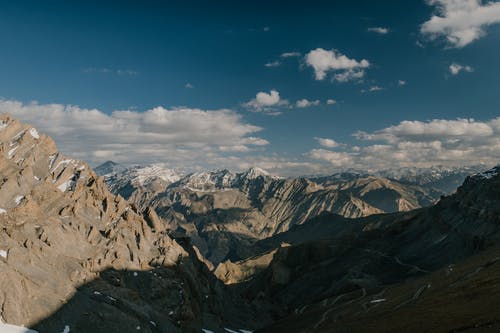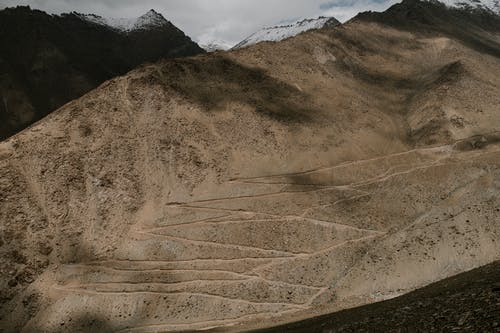Ingredients: Part 1a
“The fear of the LORD is the beginning of knowledge: but fools despise wisdom and instruction” (Proverbs 1:7).
That which is the chief part of knowledge, then, must be the concern of everyone who has any interest in true knowledge. So for the past few Lord’s Day mornings, we’ve been considering that great and dominant theme of Holy Scripture, the fear of the Lord or the fear of God. The word “fear” has two distinct connotations in everyday parlance. There is the fear of terror and dread. Then the second kind of fear is the fear of awe and reverence and veneration. Both of these concepts are caught up in the Biblical teaching on the fear of God. Now, without any negating or diluting the first aspect of the fear of God which we studied last week, I wish to make it clear that this is not the predominant thought of Scripture in the many passages which command, commend, or illustrate the fear of God. Rather, it’s this second aspect of fear, the fear of reverential awe and veneration which is the dominant theme of Holy Scripture.
When Scripture says the fear of the Lord is the chief part of knowledge, it is not so much the fear of terror and dread which is in view but the fear of veneration, awe, and reverence. It is this fear God says He will put into the hearts of men in the blessings of the new covenant, which will cause them to adhere to His ways and to keep His statutes. So to think through this second aspect of the fear of God, I wish first of all to give some Biblical examples of this fear of reverential awe.

Last week we looked at the examples of the fear of dread and terror. We saw it in Adam. We saw it in other places in Scripture. Now this morning we want the concept to come alive in flesh and blood of Biblical examples. And then having looked at some of these Biblical examples of the fear of reverential awe, we shall begin to consider the third main area of our study: what are the indispensable ingredients of the fear of God? Having seen the dominant theme in Scripture; having, I trust, come to some basic understanding of what it is, then we want to move on to consider what must there be in a man if he is to have this fear of God: both the fear of dread and terror but primarily the fear of awe and reverence.
The Biblical examples of the fear of reverence and awe
Genesis 28:12-22: “And he dreamed, and behold a ladder set up on the earth, and the top of it reached to heaven: and behold the angels of God ascending and descending on it. And, behold, the LORD stood above it, and said, I am the LORD God of Abraham thy father, and the God of Isaac: the land whereon thou liest, to thee will I give it, and to thy seed; and thy seed shall be as the dust of the earth, and thou shalt spread abroad to the west, and to the east, and to the north, and to the south: and in thee and in thy seed shall all the families of the earth be blessed. And, behold, I am with thee, and will keep thee in all places whither thou goest, and will bring thee again into this land; for I will not leave thee, until I have done that which I have spoken to thee of.

And Jacob awaked out of his sleep, and he said, Surely the LORD is in this place; and I knew it not. And he was afraid, and said, How dreadful is this place! this is none other but the house of God, and this is the gate of heaven. And Jacob rose up early in the morning, and took the stone that he had put for his pillows, and set it up for a pillar, and poured oil upon the top of it. And he called the name of that place Bethel: but the name of that city was called Luz at the first. And Jacob vowed a vow, saying, If God will be with me, and will keep me in this way that I go, and will give me bread to eat, and raiment to put on, so that I come again to my father’s house in peace; then shall the LORD be my God: and this stone, which I have set for a pillar, shall be God’s house: and of all that Thou shalt give me I will surely give the tenth unto Thee.”
I’ve quoted the entire passage because it’s pivotal in understanding in a very practical way what this fear of reverential awe truly is. Jacob has a dream. In his dream, he sees a ladder; angels ascending and descending upon the ladder. And in the midst of that dream and this very strange vision, he hears the voice of Jehovah God, the voice of the God of the covenant who comes to renew that covenant to Jacob. And when he awakes from his dream and he begins to reflect upon it, now in the conscious actings of his mind, he comes to certain conclusions.
Conclusion number one–and we find it very clearly in verse 16: “Surely the LORD is in this place; and I knew it not.” He said, “I came out and camped under the open skies, and I had no thought of the immediate presence of God, but I was mistaken.” He says, “The Lord is in this place, and I was unaware of it.” Then when his consciousness reflects upon the fact that the Lord Jehovah, the great God of creation, the great God of covenant making, covenant keeping promise has been there, and he has actually been in His presence, the reflex action of his whole being is this:
“And he was afraid, and said, How dreadful is this place! [If God is here, and He is the God He has declared Himself to be in my vision, the God of Abraham and Isaac, the God of creation, the great God of my fathers, and if I am what I know myself to be, Jacob, a fallen son of Adam, a weak creature of the dust; that I should be in the presence of this great God–how dreadful is this place. This is none other than the house of God and the gate of heaven.]”

Now, is that dread, that fear, a fear of terror and of anguish that makes him want to run from God? No, for the subsequent paragraph indicates that it was a fear that was coupled with the most tender characteristics of trust in the faithfulness of God, of confidence in the love and the mercy of God. It’s a fear that is perfectly consistent with trust and love. For he then raises a pillar and says, “This will be a monument of the faithfulness of this same God whose presence is dreadful but who will nonetheless carefully fulfill His promise to bring me again to this place. And out of gratitude to Him, I will give Him the tenth of all that I possess.”
So I suggest that this is a beautiful and clear and accurate example of this second aspect of the fear of God. Though it says he was afraid, and though Jacob uses the term “dreadful,” it was not that dread and terror that makes a man want to run from the object like the little boy runs from the bully. But it’s a dread and a fear that is perfectly consistent with wanting to be in the presence of that object and wanting to render to it honor and worship, love, and obedience.

The second illustration is in Exodus 3. Now remember, all we’re trying to do is look as some Biblical examples of the fear of reverential awe as opposed to the fear of dread and terror. Verses 1-9:
“Now Moses kept the flock of Jethro his father in law, the priest of Midian: and he led the flock to the backside of the desert, and came to the mountain of God, even to Horeb. And the angel of the LORD appeared unto him in a flame of fire out of the midst of a bush: and he looked, and, behold, the bush burned with fire, and the bush was not consumed. And Moses said, I will now turn aside, and see this great sight, why the bush is not burnt. And when the LORD saw that he turned aside to see, God called unto him out of the midst of the bush, and said, Moses, Moses. And he said, Here am I. And he said, Draw not nigh hither: put off thy shoes from off thy feet, for the place whereon thou standest is holy ground.
Moreover he said, I am the God of thy father, the God of Abraham, the God of Isaac, and the God of Jacob. And Moses hid his face; for he was afraid to look upon God. And the LORD said, I have surely seen the affliction of My people which are in Egypt, and have heard their cry by reason of their taskmasters; for I know their sorrows; and I am come down to deliver them out of the hand of the Egyptians, and to bring them up out of that land unto a good land and a large, unto a land flowing with milk and honey; unto the place of the Canaanites, and the Hittites, and the Amorites, and the Perizzites, and the Hivites, and the Jebusites. Now therefore, behold, the cry of the children of Israel is come unto Me: and I have also seen the oppression wherewith the Egyptians oppress them.”
